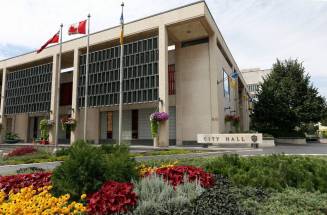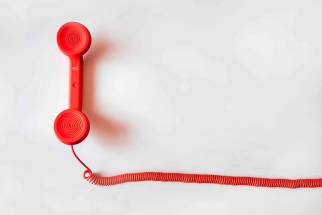New crisis line must be equipped to help
Read this article for free:
or
Already have an account? Log in here »
To continue reading, please subscribe:
Monthly Digital Subscription
$0 for the first 4 weeks*
- Enjoy unlimited reading on winnipegfreepress.com
- Read the E-Edition, our digital replica newspaper
- Access News Break, our award-winning app
- Play interactive puzzles
*No charge for 4 weeks then price increases to the regular rate of $19.00 plus GST every four weeks. Offer available to new and qualified returning subscribers only. Cancel any time.
Monthly Digital Subscription
$4.75/week*
- Enjoy unlimited reading on winnipegfreepress.com
- Read the E-Edition, our digital replica newspaper
- Access News Break, our award-winning app
- Play interactive puzzles
*Billed as $19 plus GST every four weeks. Cancel any time.
To continue reading, please subscribe:
Add Free Press access to your Brandon Sun subscription for only an additional
$1 for the first 4 weeks*
*Your next subscription payment will increase by $1.00 and you will be charged $16.99 plus GST for four weeks. After four weeks, your payment will increase to $23.99 plus GST every four weeks.
Read unlimited articles for free today:
or
Already have an account? Log in here »
Hey there, time traveller!
This article was published 07/10/2022 (1157 days ago), so information in it may no longer be current.
The forthcoming advent of 988 as the three-digit phone number for mental-health assistance in Canada is a small step in the direction of recognizing people in crisis urgently need help. The more important matter is whether the people answering the phone will have sufficient resources to offer help that is adequate.
The Canadian Radio-television and Telecommunications Commission recently announced the mental-health help line — it will be modelled on the current 911 phone service for emergencies — will be activated in Canada next year. In the U.S., the mental-health emergency number, using the same 988 number that Canadians will use, began on July 16.
The new 988 number was one of many topics under discussion at two recent gatherings of mental-health workers in Winnipeg, both held in person for the first time since the pandemic began. Last Tuesday, about 35 agencies were represented at the 10th annual Mental Health and Wellness Expo at Centre Culturel Franco-Manitobain. On Sept. 10, hundreds of participants gathered at The Forks for the third annual Recovery Day celebration, a national movement committed to mobilizing Canadians in recovery from addiction.
At both events, the 988 number was a topic of discussion among people who know about mental-health challenges, by profession or by personal experience. Most would agree it’s a positive development to get a dedicated number for people experiencing personal crises, such as suicidal thoughts.
But unless the number connects callers with trained counsellors with access to timely mental-health resources, 988 will offer little more than false hope.
If people with experience in mental-health treatment have doubts about whether the new urgent-care number will be supported in Manitoba by much-needed investment in resources, they have historic reason for their concern.
Canadian provinces spend an average of 7.2 per cent of health-care budgets on mental health. Manitoba spends 5.1 per cent. Manitobans seeking mental-health assessment and treatment through the public-health system face long waits, and the system can be frustratingly difficult to navigate.
MIKAELA MACKENZIE / FREE PRESS FILES Minister of Mental Health and Community Wellness Sarah Guillemard
Manitoba also has the lowest per-capita number of psychologists in Canada, although that deficit was partly addressed in June when Minister of Mental Health and Community Wellness Sarah Guillemard announced the $853,000 recruitment of five clinical psychologists and the opening of a new mental-health unit at Victoria General Hospital.
“We know that stress related to the (COVID-19) pandemic has increased mental-health issues across Manitoba and Canada — this has created added pressures on an already taxed mental-health system,” Guillemard said at the time.
If 988 in Canada gets results like 988 has in the U.S. since it was introduced, get ready for a big boost in the number of people calling for help. Data from the U.S. show the number of contacts to 988 via call, text and chat in August 2022 increased 45 per cent over calls via traditional means in August 2021.
The prospect of 988 bringing such a large number of calls for help is an opportunity to reimagine and fundamentally change crisis response in Manitoba.
The prospect of 988 bringing such a large number of calls for help is an opportunity to reimagine and fundamentally change crisis response in Manitoba. The challenge will be to have the calls answered by staff trained to engage callers, stem crises temporarily as needed, and direct callers to resources available for long-term care.
If Manitoba rises to the challenge, an efficient 988-response system could prevent people in dire mental distress from getting lost in a maze of runaround, red tape and long waiting lists for treatment. Lives can be saved.
The worst-case scenario would be for people to dial 988 and find Manitoba’s mental-health support system is out of order.












